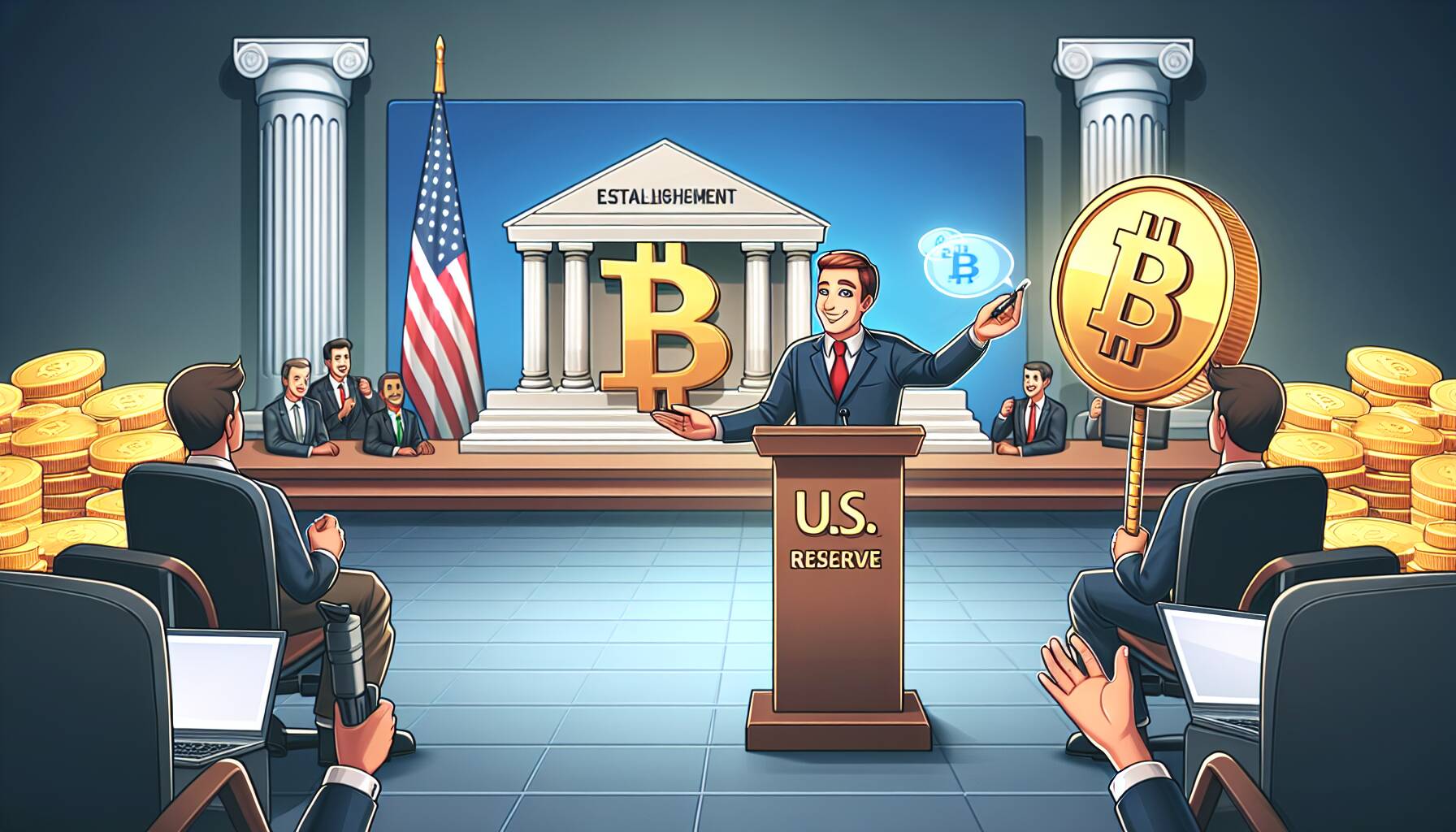In a notable move for the cryptocurrency landscape, former President Donald Trump has officially signed an executive order aimed at establishing a United States Strategic Bitcoin Reserve. This development, which has garnered attention from multiple media outlets, promises to shape the future of digital assets in the country.
The executive order seeks to create a government-managed stockpile of Bitcoin, drawing comparisons to a modern-day “Fort Knox” for digital currency. The announcement has had an immediate impact on the cryptocurrency markets, briefly propelling crypto prices upward as investors reacted to this ambitious initiative.
As federal officials, including the newly appointed White House crypto czar, outline the framework for this reserve, experts are weighing in on the potential implications. While this strategic move is seen as a significant endorsement of Bitcoin and digital assets, many analysts caution that the establishment of such a reserve may still be a complex endeavor that could take considerable time to realize fully.
“The mere notion of a U.S. government Bitcoin reserve reflects a growing acceptance of cryptocurrency, which could influence regulatory approaches nationwide,” noted one market observer.
From conversations about national security to discussions on economic strategy, Trump’s executive order is expected to spark widespread debate among policymakers, investors, and crypto enthusiasts alike. As these discussions unfold, the long-term effects on the cryptocurrency market and its regulations remain to be seen.

Trump Signs Executive Order Establishing U.S. Strategic Bitcoin Reserve
Key developments regarding the establishment of a U.S. Strategic Bitcoin Reserve, their potential implications, and effects on readers’ lives:
- Executive Order Signing
- Trump has signed an executive order aimed at forming a Strategic Bitcoin Reserve.
- This move signifies a governmental shift towards recognizing and integrating cryptocurrency into national policy.
- Impact on Crypto Prices
- The announcement led to a short-lived surge in crypto prices, indicating market sensitivity to governmental actions.
- Readers invested in cryptocurrency may experience fluctuations in value based on such governmental decisions.
- Strategic Resource Management
- The proposed idea is likened to creating a “Fort Knox” for digital assets, emphasizing its importance as a national resource.
- Building a reserve may influence how cryptocurrencies are perceived globally and could lead to greater legitimacy.
- Long-Term Considerations
- Experts suggest that despite the announcement, the establishment of the reserve may still be far off.
- Delays could create uncertainty in the market, affecting investment strategies for individuals and institutions.
This executive order represents a critical moment for the future of digital currencies and their regulatory landscape in the U.S.
Trump’s Strategic Bitcoin Reserve: A Game Changer or Just Hot Air?
The recent announcement by former President Trump to sign an executive order establishing a strategic Bitcoin reserve has sent ripples through the cryptocurrency market. This initiative, often compared to a digital Fort Knox, positions the U.S. to potentially stockpile Bitcoin and other digital assets, which could serve as a hedge against economic uncertainty. The implications of this maneuver are significant, both positively and negatively, compared to similar industry moves by other nations and financial entities.
Competitive Advantages: By proposing a strategic reserve, the U.S. could increase its leverage in the global cryptocurrency landscape, attracting investors wary of fluctuating altcoin markets. This establishment could foster confidence in Bitcoin as a legitimate asset class, especially if it leads to government-backed support that could help stabilize its price volatility seen recently. As seen in reports from sources like CNBC and CoinDesk, the announcement prompted a brief surge in crypto prices, reflecting a renewed interest in Bitcoin as a viable option for institutional investors.
Comparatively, countries like El Salvador have already accepted Bitcoin as legal tender, albeit with mixed results. However, the U.S. reserve proposal may differentiate itself by potentially creating a more stable environment for Bitcoin operations, driving innovation and regulatory clarity. This could benefit U.S.-based crypto firms and startups looking to deepen their influence in global markets.
Competitive Disadvantages: Despite the potential benefits, skepticism remains prevalent. As indicated by coverage from MarketWatch and The Associated Press, many experts express doubt about the feasibility and timeline of implementing such a reserve. The uncertainty stemming from potential political changes and regulatory hurdles may undermine any immediate positive outcomes. Moreover, this strategic move could invite criticism from those who argue that government intervention in cryptocurrency markets goes against the decentralized ethos of digital currencies.
Such a unilateral approach could also create friction within the crypto community, particularly with proponents of total decentralization. Furthermore, existing players in the crypto field may view this initiative as a threat, fearing increased regulation and oversight that could stifle innovation and lead to market monopolies. In this evolving landscape, established financial institutions may benefit from clearer regulations, while smaller, independent crypto businesses may face challenges adapting to new government policies.
In essence, while Trump’s strategic Bitcoin reserve could pave the way for a new era in U.S. cryptocurrency engagement, its success will hinge on effective implementation and a collaborative approach with all stakeholders in the financial ecosystem. The potential for growth exists, but so do the pitfalls of government intervention, setting the stage for a complex interplay of market dynamics moving forward.
















